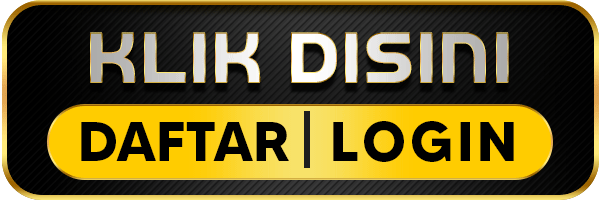Agen Sbobet Zeus Gacor
Zeus Gacor: Situs Daftar Agen Judi Bola Sbobet Resmi Terpercaya Indonesia
Zeus Gacor: Situs Daftar Agen Judi Bola Sbobet Resmi Terpercaya Indonesia
Couldn't load pickup availability
Zeus Gacor merupakan salah satu situs Judi Bola Sbobet resmi terpercaya dan sudah sejak lama ada di kawasan Asia. Apabila Anda sangat menyukai permainan taruhan dalam dunia Sportsbook, maka agen sbobet Indonesia terbesar adalah pilihan paling tepat untuk saat ini. Tidak hanya handal dalam memberikan permainan judi bola parlay Sbobet, tetapi para pemain juga bisa merasakan game Judi Online lainnya. Seperti : Casino, Slot, poker, domino QQ hingga Permainan Dadu semuanya lengkap disini. Syarat utama untuk bisa memainkan keseluruhan game tersebut juga mudah. Anda hanya wajib melakukan daftar sbobet terlebih dahulu melalui link sbobet terbaru ZeusGacor sekarang juga!
Cara Daftar Sbobet Akun Judi Bola Resmi Terpercaya
Sebelum dapat memulai banyak taruhan pasaran pada situs Judi Bola Sbobet resmi, Anda diharuskan untuk melakukan daftar sbobet bola terlebih dahulu. Tenang saja, cara membuatnya tidaklah sulit & tak akan memakan waktu lama. Kurang lebih hanya membutuhkan sekitar 2 hingga 3 menit, akun sbobet terbaru tersebut telah selesai di buat. Nah, sebelum bisa memulai bermain di agen sbobet terpercaya, Anda persiapkan kelengkapan yang sudah semestinya ada ketika ingin mendaftar akun sbobet bola.
Pertama-tama, Anda perlu masuk ke situs resmi agen Judi Bola Sbobet yang kami miliki ini Zeus Gacor. Kemudian persiapkan berbagai macam data diri hingga data rekening aktif saat ini. Hal tersebut tentu saja memiliki tujuan saat kemenangan tiba, uang taruhan Judi Bola Sbobet bisa langsung masuk ke rekening Anda saat itu juga. Jika sudah, langsung saja klik tulisan DAFTAR sbobet pada situs agen judi bola sbobet terpercaya. Lanjut, Anda bisa isi seluruh data-data yang tertera pada form pendaftarannya di situs sbobet judi bola terpercaya. Seperti : Nama Pengguna, Email Aktif, No HP Aktif, Buku dan Nomor Rekening, hingga beberapa data lainnya. Apabila tidak ingin kegagalan dalam membuat, pastikan bahwa usia Anda telah mencukupi.
Ketika sedang melakukan pendaftaran melalui link alternatif sbobet Zeus Gacor nantinya mengalami masalah. Tidak perlu panik, langsung saja hubungi layanan CS agen sbobet terpercaya pada bagian fitur Live Chat di kanan bawah situs sbobet resmi. Nantinya, Anda akan langsung di bawa untuk menelusuri permasalahan yang ada via Whatsapp, Telegram, SMS, Line hingga Telepon. Terkait masalah transaksi deposit maupun withdraw akun Judi Bola Sbobet online, Anda bisa memakai beberapa metode pilihan dari:
- Via bank lokal BCA, BNI, BRI, CIMB, Mandiri, Danamon
- Pulsa memakai jaringan Telkomsel
- E-Wallet atau Dompet Digital dari pihak OVO, GoPay, LinkAja, Dana
Macam-Macam Pasaran Taruhan Judi Bola Sbobet Asia
Permainan sbobet slot ini tentu saja berbeda dari game Slot, Dadu, maupun Casino Online lainnya. Mengapa? Karena, pada dasarnya taruhan Judi Bola Sbobet Asia memiliki nilai kemenangan tersendiri atas masing-masing pasaran taruhannya. Itu semua juga meliputi dari pertandingan liga bola internasional yang tersedia di kawasan Asia termasuk Indonesia. Berikut ini ada beberapa pasaran dari permainan situs Judi Bola Sbobet :
- Mix Parlay - menjadi salah satu jenis pasaran agen Judi Bola Sbobet parlay dengan minimal akan memilih 3 tim dan maksimal mencapai 10 tim. Jika menang, maka jumlah uang yang didapatkan sungguh besar.
- Handicap / HDP - secara singkat, taruhan ini lebih mengedepankan antar memilih tim menang atau kalah. Hasil akhirnya akan dilihat pada voor-vooran daripada tim itu sendiri.
- Double Chance / DC - memungkinkan bagi para bettors untuk dapat memasang 1 atau bahkan lebih. Sehingga, kemungkinan mendapatkan kemenangan menjadi jauh lebih besar.
- Over Under / OU - bagi para pemula dalam dunia taruhan Judi Bola Sbobet, saran kami mainkan saja tipe pasaran satu ini. Kenapa ? Karena, alur gamenya sangat mudah dipahami. Ambil contoh : Anda memasang Over 2, ketika jumlah gol atas kedua tim di atas 2 maka Anda mendapatkan kemenangan.
- Ganjil Genap / GG - sesuai dengan nama pasarannya, bahwa taruhan ini mengharuskan pemain untuk bisa memprediksi jumlah gol di akhir permainan. Apakah nantinya bernilai ganjil atau justru genap.
- Total Goal / TG - namanya juga total, sudah pasti taruhan Judi Bola Sbobet online tersebut mengharuskan Anda menembak dengan berhasil berapakah total jumlah kedua tim akhir pertandingan. Jika jawaban atas skor Anda benar, berani kemenangan ada di tangan!
Bermain Taruhan Bola Bersama Agen Sbobet Terpercaya
Sbobet telah menjadi agen judi bola resmi berkualitas yang tentu saja bisa memberikan para bettor sensasi bermain jauh lebih menyenangkan serta seru. Namun, paling penting ialah privasi atas tiap-tiap pemain tidak akan bocor kemanapun ! Karena, situs Judi Bola Sbobet online secara resmi telah mengamankan data diri dari setiap member aktifnya. Itu semua telah didukung oleh penggunaan teknologi atau security system yang bagus beserta tim IT profesional. Sehingga, akan selalu aman dan terhindar dari hack atau pembobolan data.
Tak hanya itu, sebagai situs Judi Bola Sbobet resmi terbaik, tentunya kami tak sembarang dalam menetapkan hingga mengeluarkan pasaran taruhan bola online tersebut. Semuanya secara jelas telah bersumber pada satu acuan yakni ‘betrader’. Seluruh situs sbobet Indonesia resmi di kawasan Asia maupun Eropa, sudah pasti akan memakai perhitungan sama. Sehingga, kecurangan dalam permainan Judi Bola resmi Sbobet TIDAK MUNGKIN DIDAPATKAN ! Adapun benefit menyenangkan bisa diterima oleh para pemainnya. Seperti : proses transaksi cepat, metode transaksi lengkap, pelayanan fast respon, situs senantiasa aktif 24 jam nonstop / 7 hari, berapapun jumlah kemenangan di bayar 100% langsung tanpa ada penundaan maupun pemotongan biaya aneh lainnya hanya di agen sbobet terpercaya Zeus Gacor.
FAQ - Pertanyaan yang Sering Diajukan Seputar Judi Bola Sbobet
Ini merupakan salah satu menu paling penting bagi para pemula di dalam memahami seperti apa itu Judi Bola Sbobet. Pada dasarnya, menu tersebut sudah berisikan beberapa pertanyaan yang sering diajukan oleh para pemain atau bahkan calon pemain baru didalam situsnya. Berikut adalah beberapa pertanyaannya :
-
Apa Itu Situs Sbobet?
Sbobet merupakan bandar judi bola sbobet resmi terpercaya serta terbesar di pasar Asia. Hampir 98% para penyuka taruhan Sportsbook atau olahraga, senantiasa menggunakan situs atau agen sbobet ini dalam memainkannya. Tenang saja, reputasi Sbobet pada ranah gambling sudah terakreditasi baik. Sehingga, siapapun pemain yang sedang bermain akan selalu aman saat berada disini. -
Apa Itu Perbedaan Link Sbobet Mobile dengan WAP?
Ini merupakan salah satu pertanyaan dari para pemula. Mudahnya : Sbobet Mobile menjadi aplikasi yang sentiasa di unduh pada perangkat smartphone. Baik itu berbasis iOS maupun device, mereka masih bisa memainkan game di agen sbobet terbesar. Sedangkan mengenai Link Sbobet WAP, tampilannya berbentuk web browser di HP maupun PC / Laptop. Tenang saja, tampilannya masih sangat responsif kok. -
Ada Permainan Apa Saja di Sbobet?
Seperti apa yang sudah Zeus Gacor singgung di atas. Bahwasannya tidak hanya taruhan Bola Sbobet saja, melainkan ada beragam game maupun pilihan judi online lainnya. Seperti : Live Casino / Casino Online / Table, Slot, Domino QQ, Dadu, Poker, Arcade. Sedangkan pasaran olahraga atau Sportsbook, ada : Pacuan kuda, MotoGp, Tenis, Badminton, Balap Mobil, Bola Basket, dan lain sebagainya. -
Berapakah Minimal Taruhan Agen Sbobet Indonesia?
Untuk dapat memulainya, maka Anda cukup persiapkan Rp. 10.000 rupiah saja bagi 1 akun / USER ID Sbobet. Sedangkan untuk Withdraw, mulai dari Rp. 15.000 rupiah. Terkait judi bola parlay, minimal pasang 3 tim dan maksimal bisa sampai 10 / 15. Terkait transaksi, bisa menggunakan Bank ( BCA, BNI, BRI, Mandiri, CIMB ), Pulsa Telkomsel, Dompet Digital / E-Wallet ( Dana, OVO, GoPay, LinkAja ).
Bagikan Situs Agen Sbobet Terpercaya


